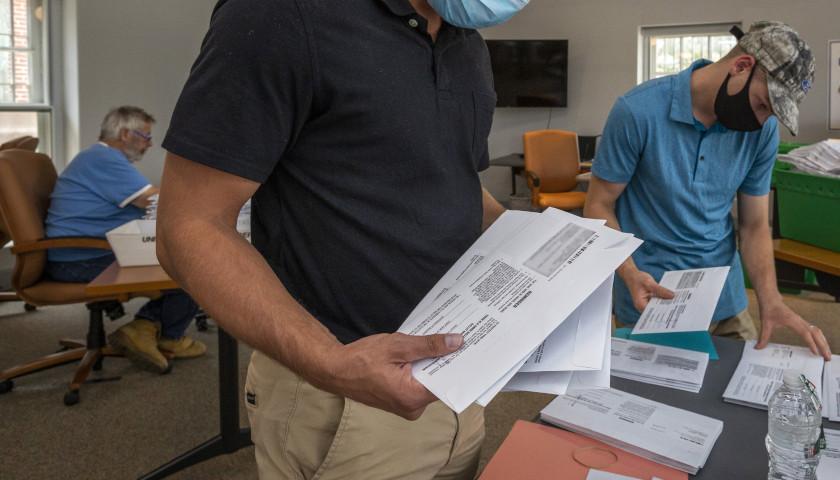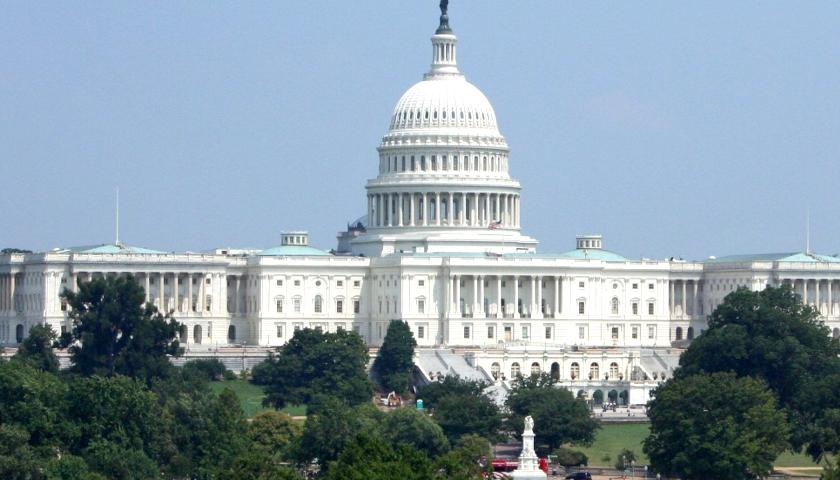by Natalia Mittelstadt
Former President Donald Trump has been arraigned on four felony counts alleging he conspired to spread claims of 2020 election fraud that he knew to be untrue to stop certification of the vote.
Federal prosecutors bringing the case, however, will have to contend with at least five high-profile cases of confirmed irregularities or illegalities from the 2020 contest ranging from Iranian interference to unlawful voting procedures.
Trump was indicted by a grand jury led by Special Counsel Jack Smith on Tuesday and arraigned Thursday in a federal courtroom on four charges, including Conspiracy to Defraud the United States; Conspiracy to Obstruct an Official Proceeding; Obstruction of and Attempt to Obstruct an Official Proceeding; and Conspiracy Against Rights.
The indictment alleges that “The purpose of the conspiracy was to overturn the legitimate results of the 2020 presidential election by using knowingly false claims of election fraud to obstruct the federal government function by which those results are collected, counted, and certified.
1. Illegal ballot drop boxes — The Wisconsin Supreme Court ruled last year that the 570 drop boxes used during the 2020 election were unlawfully approved by the Wisconsin Election Commission. “Only the legislature may permit absentee voting via ballot drop boxes,” the court declared. “WEC cannot. Ballot drop boxes appear nowhere in the detailed statutory system for absentee voting. WEC’s authorization of ballot drop boxes was unlawful.” State Rep. Janel Brandtjen told Just the News that hundreds of thousands of votes were cast in the illegal drop boxes in the 2020 race, in which Joe Biden was certified the winner over Donald Trump by fewer than 21,000 votes.
2. A foreign intrusion — Federal authorities have confirmed that two Iranian nationals successfully hacked into an unnamed state computer election system, stole 100,000 voter registrations and used the data to carry out a cyber-intimidation campaign that targeted GOP members of Congress, Trump campaign officials and Democratic voters in the November 2020 election. The defendants “were part of a coordinated conspiracy in which Iranian hackers sought to undermine faith and confidence in the U.S. presidential election,” U.S. Attorney Damian Williams declared in the indictment.
3. The laptop lie — Fifty-one “national security experts”, countless news organizations and large social media firms falsely insisted in fall 2020 that the Hunter Biden laptop — with damning revelations about Biden family corruption — was bogus “Russian disinformation”. In fact, the laptop was proven to be authentic and already in the FBI’s possession, and Hunter Biden was already under criminal investigation before voters cast their 2020 ballots. According to congressional investigators, the letter was “triggered” by Secretary of State Antony Blinken, then a Biden campaign adviser, and its organizer, former Acting CIA Director Michael Morell, each of whom wanted to create a “talking point” to help Biden win the last presidential debate of 2020 and beat Donald Trump in the election.
The effort had significant impact. According to a Polling Company survey for the Media Research Center, 45.1% of Biden voters were unaware of the censored laptop story. Abbe Lowell, one of Hunter Biden’s attorneys has reanimated the “Russian disinformation” claim, despite the fact that even The New York Times and Washington Post have conceded that the laptop was genuine. “According to our poll,” MRC’s Newsbusters reported, “full awareness of the Hunter Biden scandal would have led 9.4% of Biden voters to abandon the Democratic candidate, flipping all six of the swing states he won to Trump, giving the President 311 electoral votes.”
4. Illegal exemptions from voter ID — The Wisconsin Supreme Court also ruled as many as 200,000 voters were illegally allowed to skip voter ID for absentee ballots by claiming they were indefinitely confined by COVID when there was no legal authority to do so. The total was 10 times Biden’s approximate 20,000-vote margin of victory in the state.
5. Fulton County irregularities — Georgia’s handpicked election monitor for Fulton County, the state’s largest voting district, documented two dozen pages’ worth of mismanagement and irregularities during vote counting in Atlanta in November 2020, including double-scanning of ballots, insecure transport of ballots and violations of voter privacy. The revelations prompted the state to take steps to consider putting Fulton County in receivership, empowering state officials to run the elections. However, the Georgia State Election Board voted against taking over the county’s elections.
Trump’s lawyers have already signaled they plan to introduce evidence of such irregularities, illegalities and deceit as part of their defense to cast doubt on Smith’s theory that Trump knew or had to know there wasn’t election fraud.
“These cases are tough to prove on a good day, but they [the DOJ prosecutors] also forget that they’ve exposed themselves,” Trump lawyer Alina Habba said. “When you bring a lawsuit, you now open the door to subpoenas. You now open the door to us being able to ask you questions about the legitimacy of the 2020 election, for us being able to look at things like that.”
“So, you know, it’s a dangerous proposition, and I’m not sure it was well-thought-through, to be honest,” she added.
There’s also a trove of new evidence that former New York Police Commissioner Bernard Kerik just sent to Smith. It’s memos gathered on behalf of Trump’s legal team showing the investigation had dozens of open election fraud claims backed by sworn affidavits and other evidence that were still unresolved before the Jan. 6 Capitol riot occurred.
Kerik is set to be interviewed next week by Smith’s office. His lawyer told Just the News that the evidence could cast doubt on the prosecutors’ theory of the case.
“Even if these allegations were later debunked, or even if they were proven, but not extensive enough to alter the outcome, it does not change the fact that on the night of January 5, Kerik, Giuliani, and President Trump all reasonably believed that there was fraud, which could have affected the outcome,” Attorney Timothy Parlatore said.
– – –
Natalia graduated from Regent University with Bachelor of Arts degrees in Communication Studies and Government.





